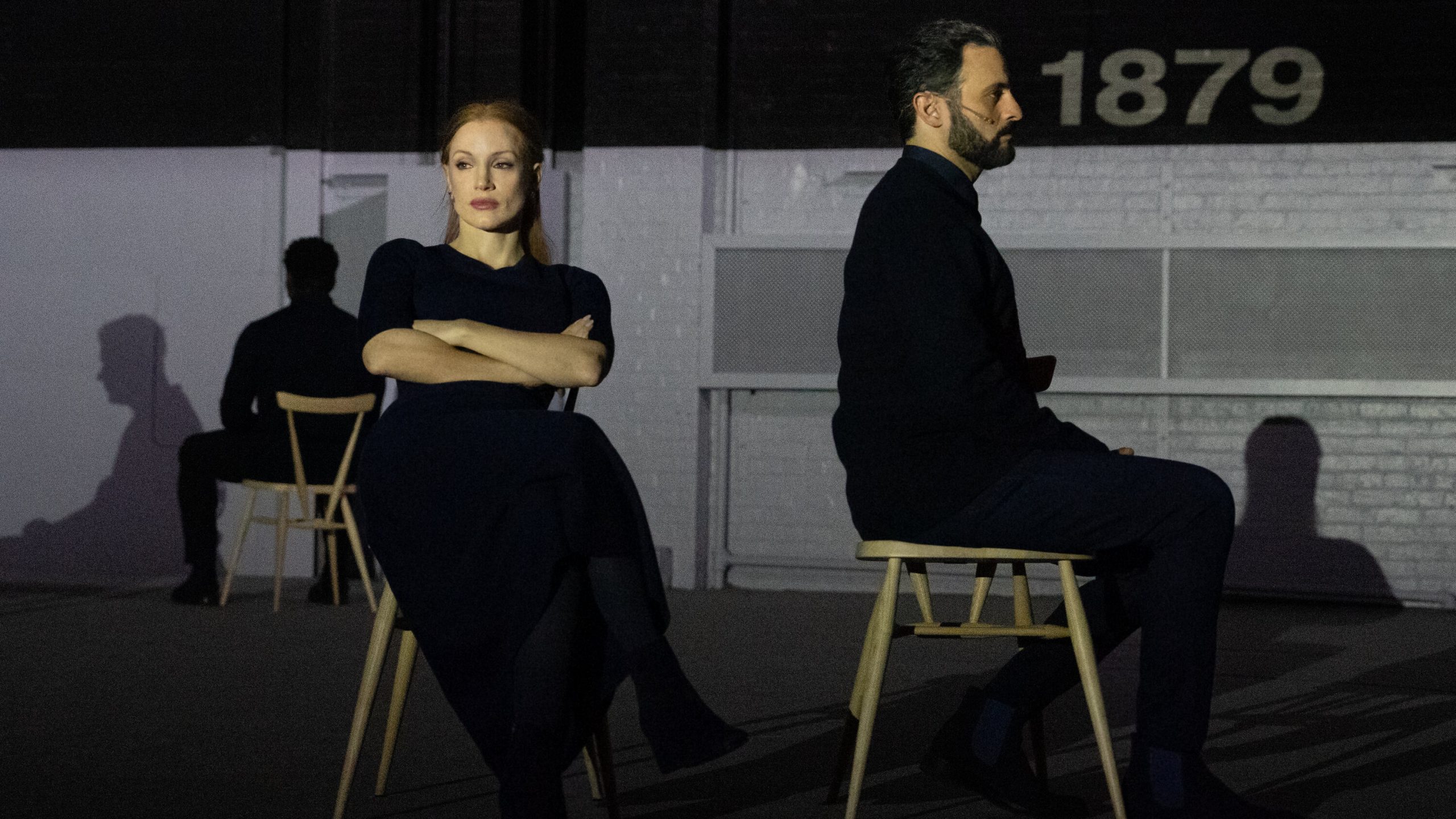A DOLL’S HOUSE
by Henril Ibsen
A new version by Amy Herzog
Directed by Jamie Lloyd
Starring Jessica Chastain
Reviewed by David Spencer
A famous dramatist or perhaps it was a novelist—it’s been decades since I first read the quote and I can’t remember to whom I should attribute it—said he thought that classic works should be revisited with new translations every generation or so. Nor can I remember exactly how he articulated his rationale either, but that one seems obvious. A piece will always have a certain linguistic resonance to those who speak its native language—particularly if they grew up within that language’s resonant culture—but the language of translation (or of a deliberately more approximate adaptation) perforce must reflect its era.
Archaism in translated language doesn’t evoke the classicism of the original language, because it doesn’t have access to that language’s native structure—archaic English, for example, whether contrived anew or in a translation from generations past, just sounds like outdated English; and that defeats the illusion of a foreign play happening in its native country.
Subsequently there is a constant quest in translation (or adaptation or “new version”) for colloquial modernity…a delicate balance that provides contemporary fluidity and eschews obvious anachronism.
Heeding that guiding philosophy, I guess one does have to sit through A Doll’s House once every decade or so. Though what’s ironic is that, in the case of the current Broadway treatment, star Jessica Chastain as Nora is sitting through it too.
Literally.
In director Jamie Lloyd’s modern dress delivery of Amy Herzog’s “new version,” we’re in the most austere kind of black box environment. There seems to be no designed set, per se. Just plain wood chairs and turntables. And Chastain stays seated in hers for the entirety of the intermissionless evening.
And this is no mean accomplishment; for she must go through her range of reactions, adjustments, triumphs, tragedies and realizations without the freedom of even the most basic mobility—obviously a metaphor—up until the moment when she claims her independence from Torvald and walks out. (Into the street, through the loading dock door, toward the Lamb’s Club, midtown.)
An ironic phenomenon of updating translations to avoid the mustiness of dated locution is often a diminution of time-and-place verisimilitude, in an attempt to not only achieve colloquial modernity…but to achieve thematic immediacy; in a way, to further emphasize, sometimes to force, relevance to the present day. It takes an unusual capacity for linguistic poetry to avoid this endemic trap; and, also ironically, it’s why the translation of Rostand’s Cyrano de Bergerac by Anthony Burgess, from 1970, has remained timeless and unbeatable for over half a century. It goes right to an unusual and unique sweet spot.
Ms. Herzog’s iteration of Henrik Ibsen is not so timeless. Nor, I have to add, does it seem to want to be. There’s no part of her Doll’s Life that wouldn’t serve as credible dialogue written for a television nighttime soap opera in 2023. Which seems altogether intentional. The script avoids open and obvious anachronism, but it nonetheless strives to be heard as conversational and, more than that, intimately so.
Making it even more like television is that there’s no pretense at theatrical projection. Everyone in the cast is caressingly body-miked for nuance. For softness. For whispers. Oh, there’s demonstrative emotion too—especially from Aryan Moayed’s feckless, manipulative Torvald, the very case history of a malignant narcissist—but there’s a very real sense in which it’s all voice-over acting. If you were denied the visual and had access only to a downloadable MP3 of the audio…your experience wouldn’t fall far short of being there in person.
The production concept and delivery—as the saying goes—is what it is. And it’s very well done for what it is. And if what it is seems like it will intrigue you, then by all means partake; it will not disappoint. It will likely even fill the bill as a decent introduction for those of you who’ve never seen A Doll’s House before. But if you know the play and prefer your next-generation translation/adaptations to bring with them next-level revelations…the Herzog-Lloyd treatment may be a more muted experience.
